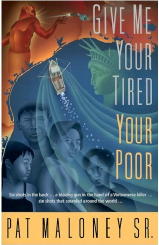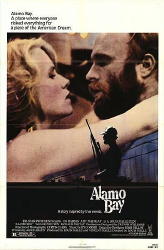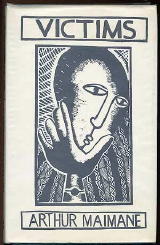Mon 14 May 2007
Deaths Noted: PAT MALONEY, SR., and ARTHUR MAIMANE.
Posted by Steve under Authors , Crime Fiction IV , Obituaries / Deaths NotedNo Comments
Two authors who have passed away not too long ago seem to have escaped notice in the world of mystery fiction, but not to the larger universe we also live in. Both have only one book included in Crime Fiction IV, by Allen J. Hubin, who recently came across the deaths of each.
First is Pat Maloney, Sr., whose entry in CFIV previously looked like this:
MALONEY, PAT, Sr. (c1926- ); Texas trial lawyer from San Antonio.
* Give Me Your Tired, Your Poor (Presidio, 1998, hc) [Texas]

Saying that Mr. Maloney was a trial lawyer is perhaps the understatement of the year, so far. Extracted from his obituary which appeared in the Washington Post for September 21, 2005, is the following:
Combative and controversial in a personal-injury and product-liability career that spanned more than a half-century, Mr. Maloney won more than a hundred cases where the verdict topped $1 million. He was known as the king of torts.
[…] Mr. Maloney often said that his most memorable case was a 1979 capital murder trial involving two young Vietnamese brothers who worked as crab fishermen on the Texas Gulf Coast. They were charged with killing a longtime crabber who had terrorized them as part of an orchestrated effort to drive the newly arrived Vietnamese immigrants out of the coastal area. […] He represented the brothers pro bono.
Even though he was not a criminal lawyer and his clients had shot the victim six times in the back […], he managed to get an acquittal for the two young men.
The French director Louis Malle made a movie about the trial, Alamo Bay (1985), and Mr. Maloney wrote a vanity novel about it, Give Me Your Tired, Your Poor (1999). The main character is a colorful San Antonio lawyer named Frank Hogan.

To complete his updated entry in CFIV, Mr. Maloney was born August 9, 1924.
Another author whose death has been recently noted is Arthur Maimane. His entry in CFIV consists of just one title as well:
MAIMANE, ARTHUR (1932- ); A black South African.
* Victims (Allison, 1976, hc) [South Africa; 1950s]
One title, but the overall scheme of things, an important one. Born October 12, 1932, his full name was John Arthur Mogale Maimane. He died in London, June 28, 2005. Taken from his obituary in The Independent (London) is a short description of his early working career:
This was an escape from the colour bar and oppression at home, but also from the attentions of the township gangsters who had murdered his fellow Drum news editor and role model, Henry Nxumalo, in 1957. Maimane’s crime reports and his Hadley-Chasesque short stories, under the name ‘Arthur Mogale’, had not gone down well in the Johannesburg underworld.
[…] He returned to the ‘new South Africa’, first for a year with the liberal, fringe Weekly Mail in May 1990, during which he was again ‘the first black journalist,’ this time to report on the dismantling of apartheid legislation. From 1994 to 1997 he served as managing editor of the Johannesburg Star, and also became a columnist on the Sunday Independent.
His book Victims, winner of the English Academy of South Africa’s Pringle Award for Creative Writing in 1978, was banned in South Africa at the time of its publication but finally appeared there under the title Hate No More, Kwela Books, 2000.

An online description of the book says of it:
Another, more detailed obituary appears online here, this one from The Guardian.